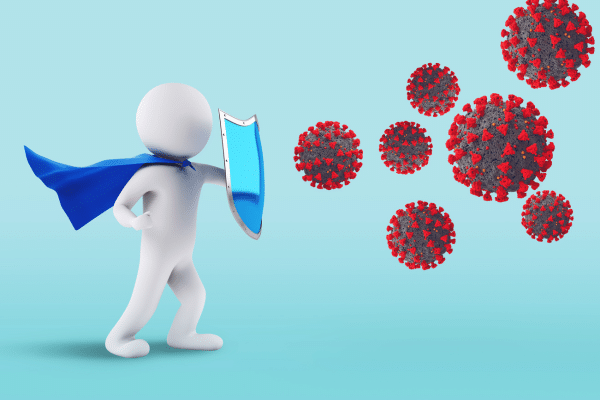Engaging in cardiovascular exercise, often simply called “cardio,” is akin to granting oneself a myriad of health benefits. Beyond the immediate perception of cardio as a calorie-burner, it’s a bridge to comprehensive physical and mental well-being. Delving into its profound effects reveals not only how it influences our body’s vital systems but also our psychological and emotional state. This article aims to shed light on the profound advantages of cardio, taking readers on a journey from its weight management capabilities to its impact on emotional equilibrium.
Contents
Promotes Weight Loss

When one indulges in cardiovascular pursuits, be it running, cycling, or even dancing, there’s an uptick in the body’s metabolic functions. This increase doesn’t just spike momentarily. Instead, it ensures a consistent and effective calorie burn, becoming an ally in weight loss endeavors. Over time, this consistent metabolic boost provides a reliable method of not only losing weight but also avoiding the regaining of those lost pounds.
On a broader scale, the importance of weight management becomes even more evident. With global concerns like obesity looming large, tools that help maintain a healthy weight are invaluable. Cardio stands out in this scenario. Its capability extends beyond short-term weight loss solutions, offering a sustainable approach to staying in shape and leading a healthier life.
Improves Heart Health

The heart, a pivotal organ, benefits immensely from regular cardiovascular activity. Such exercises, while seeming outward-focused, are intricately linked to the heart’s performance. As one continues with their cardio routine, the heart undergoes a transformation, becoming stronger and more adept at its primary function – pumping blood. This enhanced ability translates to better circulation and often results in lowered blood pressure, offering protection against potential cardiovascular ailments.
Moreover, the effects of cardio aren’t restricted to just the heart’s muscular performance. A consistent cardio routine influences one’s cholesterol profile, tipping the balance in favor of health. It aids in the reduction of LDL cholesterol, which is typically labeled as “bad,” while promoting an increase in the beneficial HDL cholesterol. By achieving this balance, cardiovascular exercises serve as a sentinel, guarding against heart-related diseases and promoting overall heart wellness.
Boosts Mood

Delving into the psychological aspects of exercise unveils the mood-enhancing benefits of cardio. Activities such as jogging, aerobics, or even brisk walking trigger the release of endorphins – neurotransmitters known as the body’s natural painkillers and mood elevators. This rush of endorphins is often colloquially termed as the “runner’s high.” Beyond mere euphoria, this hormonal surge aids in mitigating symptoms of depression and anxiety, presenting cardio as a natural therapy for mental wellness.
Yet, the mood-enhancing capacities of cardio are not solely tied to endorphin release. Engaging in such exercises provides a sense of accomplishment, further contributing to an elevated mood. Simultaneously, cardiovascular routines serve as a distraction, offering a reprieve from daily stressors and anxious thoughts. Over time, a regular cardio regimen can foster a positive mental state, adding a layer of psychological resilience.
Enhances Lung Capacity

The respiratory benefits of cardiovascular exercises are palpable. Engaging in such activities consistently challenges the lungs, prompting them to improve their efficiency in oxygen intake and carbon dioxide expulsion. An enhanced lung capacity doesn’t merely translate to better performance during workouts. It implies a more efficient respiratory system that can aid in daily tasks, from climbing stairs to long walks, making them less daunting.
Cardio’s impact on the respiratory system isn’t just immediate. The long-term benefits extend to a reduced risk of respiratory ailments. For instance, individuals who partake in consistent cardio are often better equipped to fend off conditions like asthma or other bronchial issues. By promoting optimal lung function, cardiovascular exercises ensure that one’s breath remains unfettered, a symbol of both vitality and life.
Promotes Better Sleep

In the hustle and bustle of modern life, the quest for restful sleep is paramount. Cardiovascular exercise emerges as an unexpected yet potent ally in this quest. By elevating the body’s core temperature during exercise, a subsequent drop post-exercise aids in inducing sleep. Moreover, the physical exertion associated with cardio paves the way for deeper, more restorative sleep, ensuring that one wakes up rejuvenated and alert.
Beyond the physiological, there’s a symbiotic relationship between sleep and mental tranquility. Engaging in cardiovascular routines diminishes stress and anxiety levels, common culprits behind sleep disturbances. By providing an outlet for pent-up energy and stress, cardio ensures that the mind is relaxed at bedtime, conducive to a night of uninterrupted and sound sleep.
Increases Brain Health

The brain, much like any other organ, thrives on proper care and stimulation. Engaging in cardiovascular exercise is akin to offering the brain its favorite nutrient. As the heart pumps blood more vigorously during such exercises, the increased circulation ensures that the brain receives a more significant amount of oxygen and vital nutrients. This increased blood flow has been linked to the growth of the hippocampus, a region of the brain responsible for memory and learning.
Beyond structural benefits, cardiovascular exercises play a role in cognitive function. Studies have shown that people who consistently partake in cardio activities often display sharper memory, better attention spans, and reduced risk of cognitive decline as they age. Furthermore, there’s a growing body of evidence suggesting that regular cardiovascular exercises can potentially delay the onset of neurodegenerative diseases like Alzheimer’s.
Enhances Immune Function

At the forefront of defending against illnesses stands the immune system, an intricate network that benefits greatly from cardiovascular exercises. Regularly engaging in such activities bolsters the immune response, making it more efficient in warding off infections. This heightened state of alert ensures a rapid response to potential threats, minimizing the duration and severity of common ailments like colds or the flu.
Moreover, the long-term implications of a robust immune system are profound. Regular cardiovascular activity has been linked to a reduced risk of chronic illnesses, including certain types of cancer. By continuously shedding toxins through sweat and promoting healthy blood flow, cardio exercises ensure that the immune system remains in its optimal state, ready to combat both everyday infections and potential long-term health threats.
The Bottom Line
Cardiovascular exercises are more than just a gateway to physical fitness. They embody a holistic approach to health, touching upon every facet of well-being, from mental fortitude to immune resilience. Embracing cardio is akin to investing in a comprehensive health insurance policy, one that assures benefits in the present and safeguards against potential future health challenges. As the saying goes, “Movement is medicine,” and nowhere is this truer than in the realm of cardiovascular fitness.


